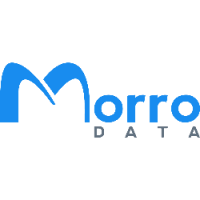Cloud Storage Costs: SharePoint, Azure File Sync, Wasabi Cloud NAS, and Morro Data CloudNAS
Cloud Storage Costs: An Analysis of SharePoint, Azure File Sync, Wasabi Cloud NAS, and Morro Data CloudNAS
As businesses expand, so does their data footprint. In recent years, transitioning from traditional Network Attached Storage (NAS) or file systems to cloud-based solutions has emerged as a prominent trend. Today, businesses rely heavily on cloud storage to effectively manage their rapidly growing volumes of data. However, with numerous cloud storage options available, navigating through the various offerings and understanding their associated costs can be a daunting task. In this blog post, we’ll explore the cloud storage costs, focusing on four different solutions, to empower you with the knowledge needed to make informed decisions tailored to your specific storage requirements.
SharePoint
With the widespread adoption of Microsoft Office 365 among companies, the utilization of SharePoint for data synchronization has become increasingly common. SharePoint offers integration with Office 365, providing users with a convenient platform to sync and manage their data across devices. However, its pricing structure warrants careful consideration.
For organizations leveraging SharePoint within their Office 365 environment, data storage costs can quickly escalate. By default, SharePoint provides a certain amount of storage space, depending on the subscription plan. However, once this allocated storage is exceeded, additional storage incurs an extra charge, at a rate of $200 per terabyte per month.
One key factor that businesses need to be mindful of is the cost associated with inactive or seldom-accessed data. While SharePoint offers robust data management capabilities, including versioning and access controls, storing large volumes of inactive data can result in unnecessary expenses.
Azure File Sync
Azure File Sync offers synchronization of on-premises files to Azure Files, combining the benefits of on-premises file servers with the scalability of the cloud. However, it’s essential to consider the associated costs:
- Server Fee: Azure File Sync imposes a fee of $5 per sync server.
- Data-at-Rest Charges: Data at rest in Azure can be charged in four categories: Premium, Transaction Optimized, Hot, and Cool. For instance, storing 1TB of data can incur the following monthly charges:
- Premium: $165/mo
- Transaction Optimized: $62/mo
- Hot: $26/mo
- Cool: $16/mo
It’s essential to conduct a cost analysis based on your specific requirements.
- Transaction/Operations Costs: Calculating transaction costs, except for premium storage, can be challenging without knowing the number of files. List transactions, incurred during the change detection process, can add up significantly. For instance, Azure File Sync initiates a change detection job every 24 hours, enumerating every file in the file share. This results in a list of transactions, which can lead to additional costs. For example, if you have a 3TB share, you could incur millions of list transactions per day, significantly impacting your overall costs.
In conclusion, understanding and managing Azure File Sync costs require careful consideration of various factors, including server fees, data-at-rest charges, transaction costs, and storage options. By conducting a thorough cost analysis and selecting the most appropriate storage tier, organizations can optimize their Azure File Sync deployments while minimizing expenses. Check out our blog post comparing Azure File Sync and CloudNAS.
Wasabi Cloud NAS
Wasabi Cloud NAS offers network-attached storage in the cloud. With Cloud NAS, organizations can connect their existing on-premises NAS, SAN, or DAS systems to automatically offload cold data or any data to Wasabi’s low-cost hot cloud storage. This offloading process helps organizations free up server capacity while ensuring that their data remains readily available and retrievable within milliseconds.
Despite its affordability and robust features, it’s important for organizations to understand that Wasabi Cloud NAS is not designed for syncing data in real-time. While it excels at providing scalable storage for archived or infrequently accessed data, it may not be suitable for use cases that require immediate synchronization or high-speed data transfers.
In terms of pricing, Wasabi Cloud NAS offers a competitive rate of $8.99 per terabyte per month, making it a more cost-effective option compared to alternatives like Azure File Sync and SharePoint. However, organizations should carefully evaluate their specific storage requirements and consider factors such as data access patterns, performance needs, and synchronization capabilities before choosing a storage solution.
Exploring Morro Data CloudNAS
On the other hand, Morro Data CloudNAS offers a comprehensive solution tailored for multi-site businesses that require efficient file syncing and sharing capabilities across distributed locations. In addition to providing cost-effective cloud storage, Morro Data CloudNAS offers features such as file versioning, file locking for Office and Design files, and data recovery capabilities. These features ensure data integrity, collaboration efficiency, and business continuity across diverse operational environments. Morro Data CloudNAS subscription plan starts at $129 per month including 1TB default storage.
Compared to Wasabi Cloud NAS, Morro Data CloudNAS offers additional benefits such as real-time file syncing and granular access controls. Furthermore, Morro Data’s intuitive management interface and centralized administration tools simplify deployment and ongoing management tasks, reducing overhead and enhancing operational efficiency.
